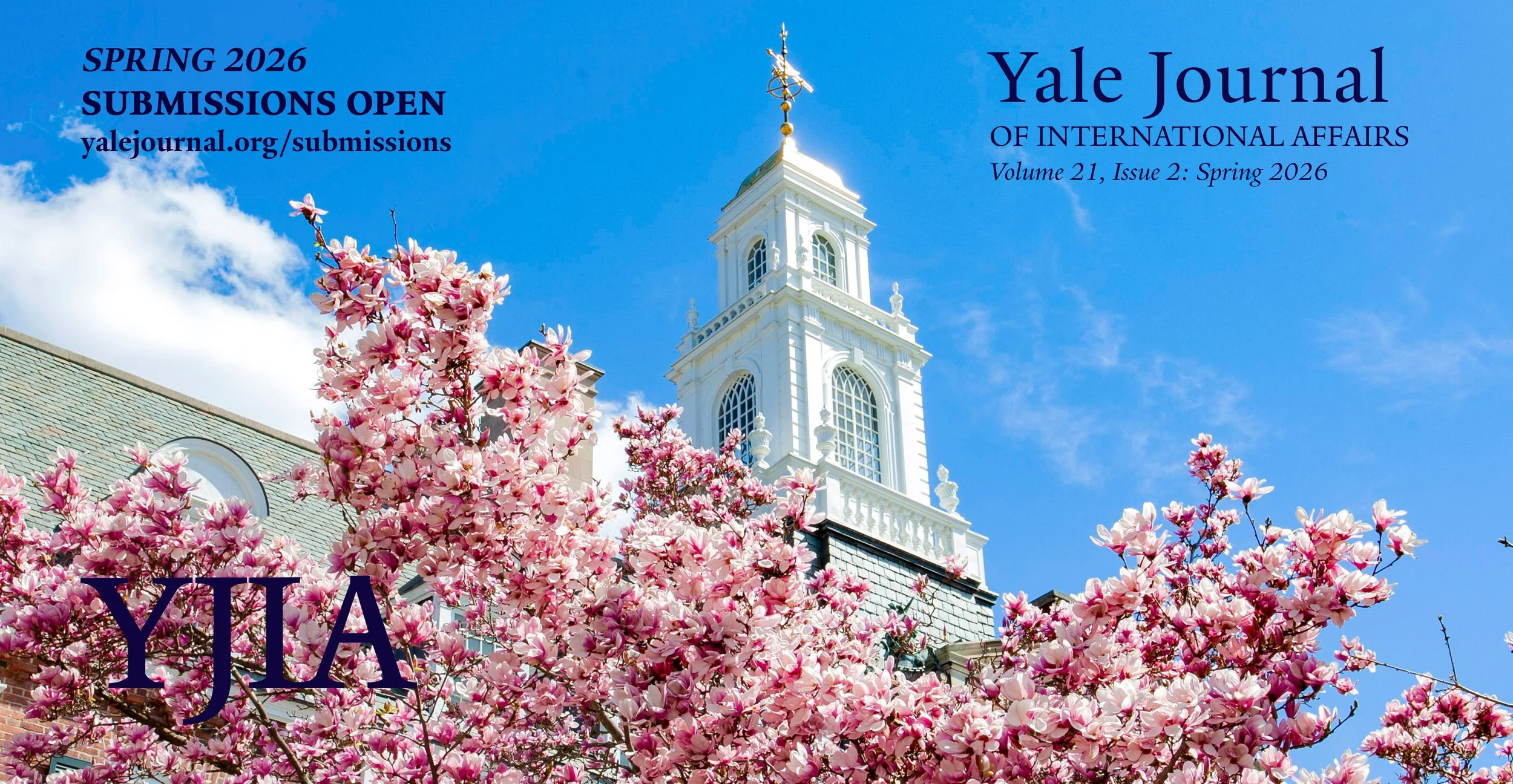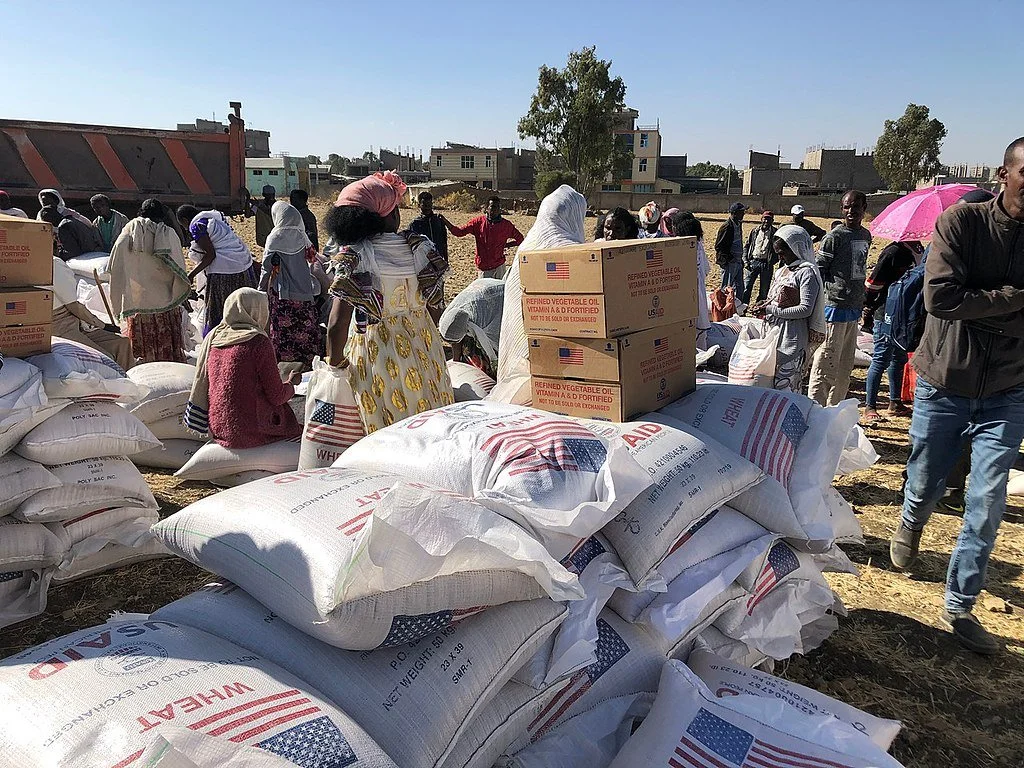Latest on YJIA
Munisa Djumanova examines why Central Asia's post-Soviet states have resisted democratization while their Eastern European counterparts embraced democratic transitions. Through comparative analysis, she argues that domestic elite cohesion combined with strategic support from Russia and China creates a resilient authoritarian system that withstands both internal protests and external democratizing pressures.
In the wake of the 2024 collapse of Synapse Financial Technologies, Rafael Morales-Guzman argues for a Basel-style international regulatory framework that would establish minimum standards for digital banking intermediaries.
It is our pleasure to announce the brilliant collection of scholarly work that makes up the Yale Journal of International Affairs Fall 2025 issue.
Munisa Djumanova examines why Central Asia's post-Soviet states have resisted democratization while their Eastern European counterparts embraced democratic transitions. Through comparative analysis, she argues that domestic elite cohesion combined with strategic support from Russia and China creates a resilient authoritarian system that withstands both internal protests and external democratizing pressures.
In the wake of the 2024 collapse of Synapse Financial Technologies, Rafael Morales-Guzman argues for a Basel-style international regulatory framework that would establish minimum standards for digital banking intermediaries.
Examining the systematic exclusion of women from Somalia's security forces, Louise Liebing argues this undermines operational effectiveness against al-Shabaab while perpetuating the gender-based violence that affects 93 percent of reported victims in the country.
Ibrahim Mustafayev and Orkhan Akbarov argue that Western nations have ceded global nuclear energy leadership to state-backed competitors like China and Russia not due to technological inferiority, but from three structural failures: prioritizing bespoke design innovation over standardized replication, lacking sustained state financial backing, and allowing decades-long construction gaps that eroded critical industrial capabilities.
Has modern multilateralism become a vehicle for normalizing autocracies rather than defending democratic principles? Marian Vidaurri tackles this question by analyzing how democratic governance has prioritized diplomatic inclusion over accountability for authoritarian regimes.
Ankita Singh Gujjar traces the 4B movement's emergence from Korea's gendered political economy and its rapid digital diffusion to the United States following Trump's re-election.
Drawing on a survey of local respondents across flood-affected regions in South Sudan, James Maker Atem reveals how weak governance structures fail to address violent conflicts stemming from climate change.
Are new financial instruments effective in tackling the climate crisis? Shreya Bajaj and Amit Sheoran examine the case study of debt-for-nature swaps in Ecuador.
Grace Klopp proposes a 2025 Space Guardrails Initiative that would reaffirm existing space treaties while establishing reciprocal verification and transparency measures.
In our Photo Essay of this issue, Bryn Evans documents Port Vila's ongoing recovery six months after a devastating 7.3 magnitude earthquake struck Vanuatu's capital in December 2024. He reveals how the city's 50,000 residents have adapted to life amid rubble and reconstruction.
Jesús Napoleón Guerrero Ruíz examines why Latin America remains the only geopolitically significant region lacking professional intelligence services with external espionage and counterintelligence capabilities. He traces this deficit to Cold War legacies that oriented intelligence toward domestic surveillance rather than strategic statecraft.
This article examines the adverse consequences of recent U.S. cuts to global health funding, with a particular impact on maternal and child health programs in Africa. She highlights successful initiatives, like Niger's reduction in maternal mortality, and argues that such funding is crucial for both humanitarian and national security objectives.
Moon Hwan Lee reveals how North Korea exploits rare earth mineral trade and financial loopholes to evade sanctions. Highlighting cases like DHID, he calls for stronger enforcement through financial crime frameworks, traceability tools, and trade controls to protect global security and reinforce the effectiveness of international sanctions regimes.
In this piece, Viola Fur shows that Uzbekistan must enact targeted reforms to escape the middle-income trap. It calls for stronger support for small businesses, modernized education aligned with labor market needs, and investment in clean energy—key steps to boost productivity and secure sustainable, inclusive growth by 2030.
Eleonora Lucia Cammarano examines the geopolitical and energy implications of Mali, Niger, and Burkina Faso's withdrawal from the Economic Community of West African States (ECOWAS). The piece highlights how these countries' alignment with Russia, including exclusive uranium mining agreements, could jeopardize Europe's nuclear energy supply and destabilize regional security.
Haiti’s collapse demands international action, Martin Rodriguez argues, as he proposes a UN-backed conservatorship to restore stability, citing past models like Timor-Leste and Cambodia. He believes that only external administration can rebuild institutions and enable Haiti’s long-term path to self-governance.
Sumesh Shiwakoty explores how Trump’s presidency affected the U.S. dollar’s global reserve status, particularly how Trump’s trade policies, political rhetoric, and skepticism toward international institutions weakened confidence in the dollar.
Alexander Sarti argues that the CHIPS Act alone will not secure U.S. semiconductor leadership. Despite major investments, reliance on foreign supply remains high. He calls for bold innovation and new manufacturing models to overcome labor, cost, and talent barriers in order to achieve real technological independence and long-term competitiveness.
It is our pleasure to announce the brilliant collection of scholarly work that makes up the Yale Journal of International Affairs Spring 2025 issue.


















